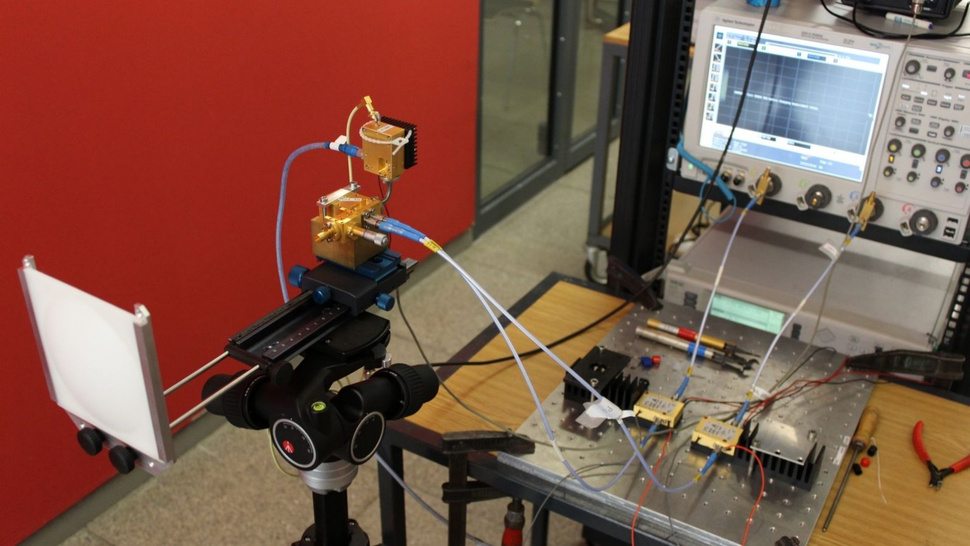New World Record for Wireless Speed – 100 Gbit/s
Chris Hadley / 11 years ago

Lets admit it, the dream of having Google Fibre in our homes to give us a super fast connection to the internet is for the most part a dream, but to take the biscuit, if you want it fast you must have wires connecting everything – or do you? Thanks to those crazy German scientists, the need to have a wire to serve your Gigabit fibre connection from point A-B is no longer a necessity with a new wireless speed that can run at a whopping 100 Gbit/s – that’s right, 100x times as fast as Googles Fibre service.
After setting a record of 40Gbit/s only a few months ago, a joint team from the Fraunhofer Institute for Applied Solid State Physics (IAF) and the Karlsruhe Institute of Technology (KIT) set upon the task of taking the speed right up to 11. With this new record of speed, there is the capability at hand to transfer an entire Blu-ray film in under two seconds, but with the signals running at a mind-boggling frequency of 237.5GHz (nearly 50x the frequency of the current Wireless-n standard) there is one slight catch – the range.
As users of 2.4GHz and 5GHz dual band networks will know, the higher frequency signals and walls really do not mix so as you can imagine, running at a frequency this high means that you can have virtually nothing in the way – in fact you are almost in a situation where the two ends have to be able to see each other just to operate. I’m sure that a number of you are wondering what the point in this tech is in reality – after all fibre cables can transfer data at super fast rates already – but there are a large number of situations where fibre is just not an option. With the need for bandwidth growing at an exponential rate and the amount of data that we are working with as well, this technology has the capability to provide super fast data ‘pipelines’ to areas where laying fibre is just not possible – either due to cost or environmental restrictions.
“By employing optical and electrical multiplexing techniques, i.e., by simultaneously transmitting multiple data streams, and by using multiple transmitting and receiving antennas, the data rate could be multiplied. Hence, radio systems having a data rate of 1 terabit per second appear to be feasible” – These are the words of Swen König – one of the projects researchers. Lets face it, dial-up is slow, but now my 80Mbps fibre connection at home seems like its out of date already.
Source: Gizmodo



















